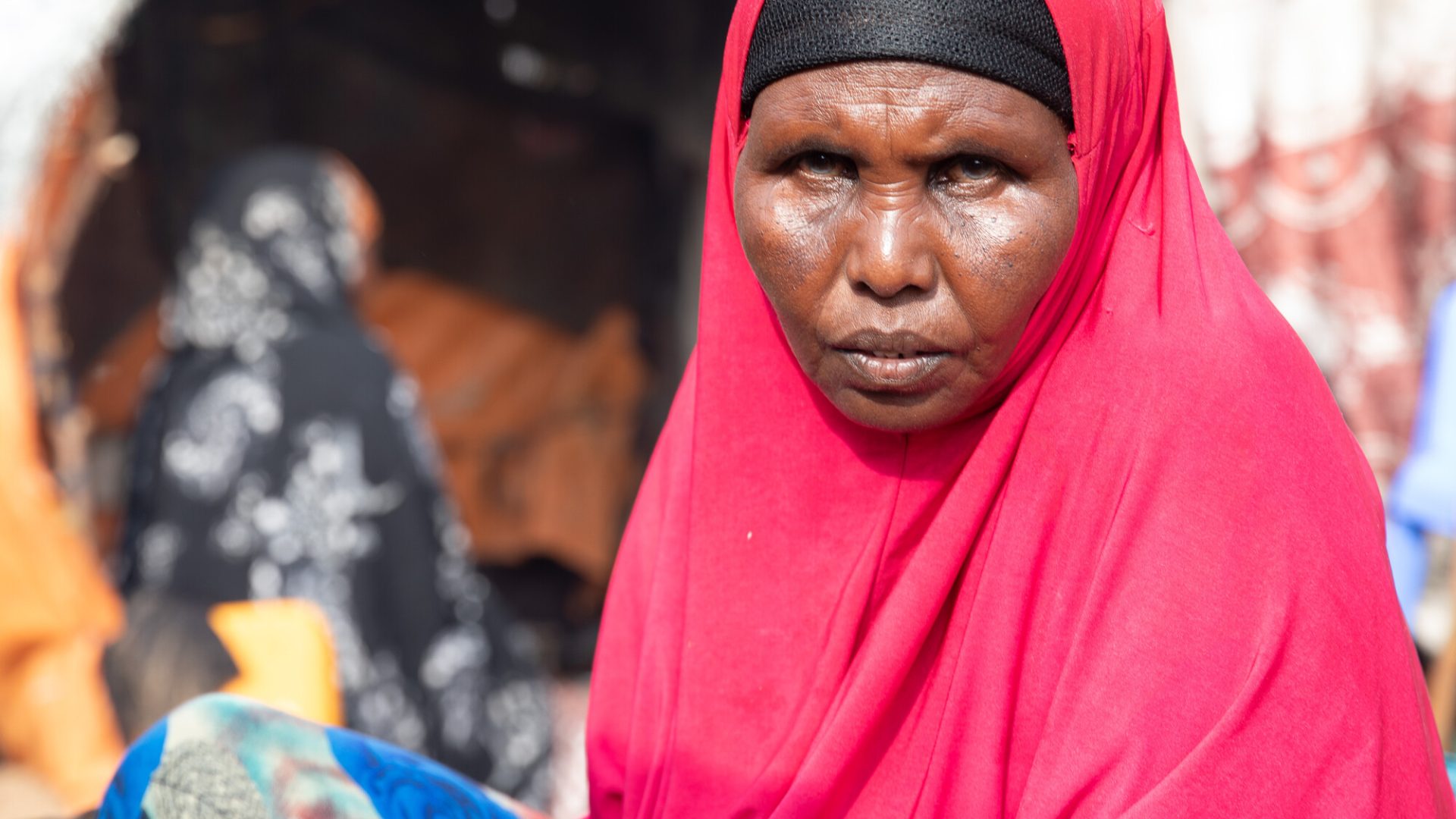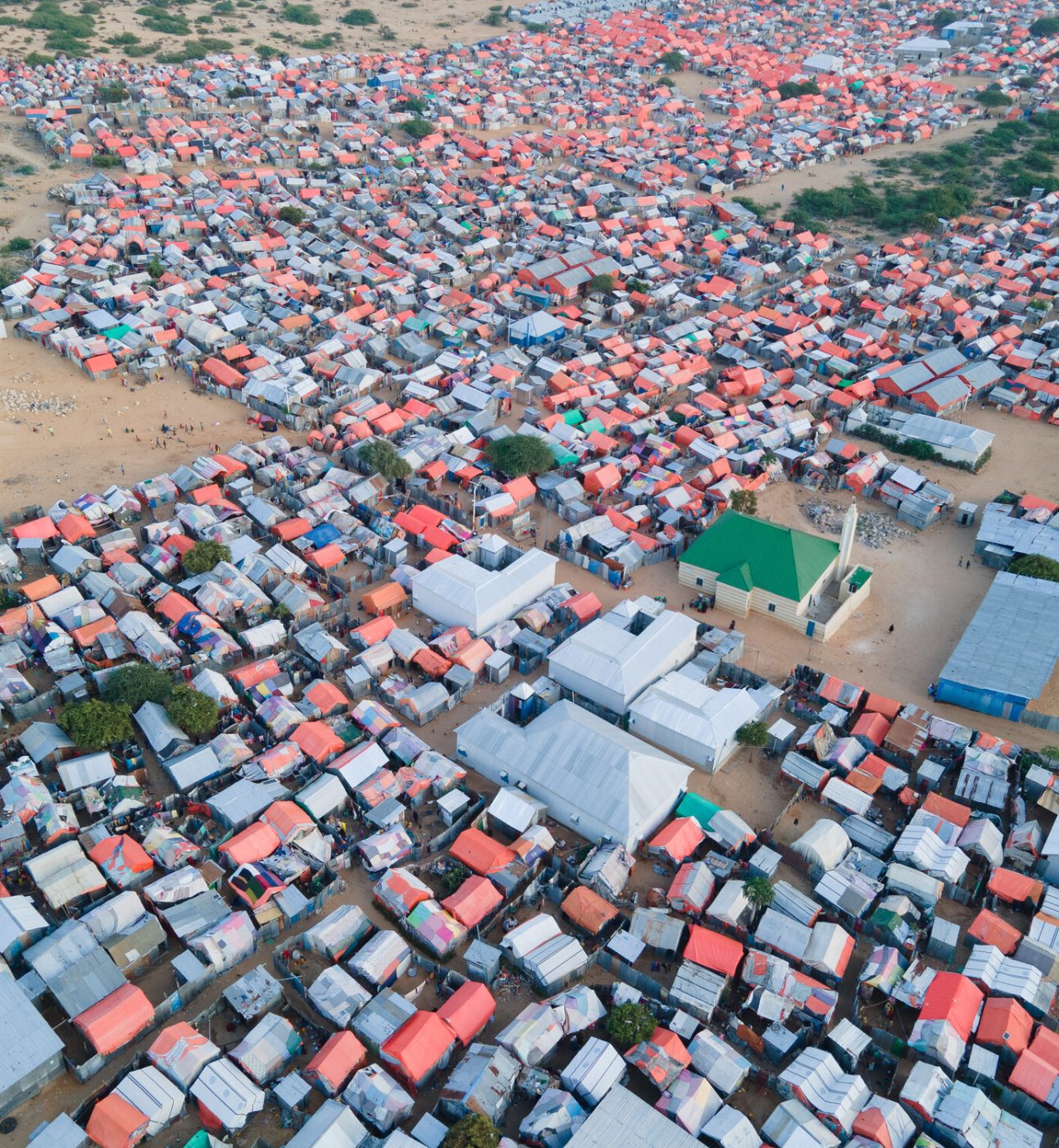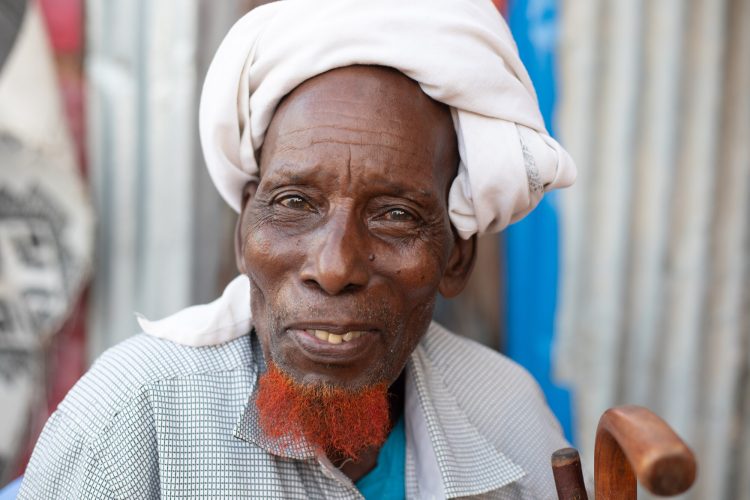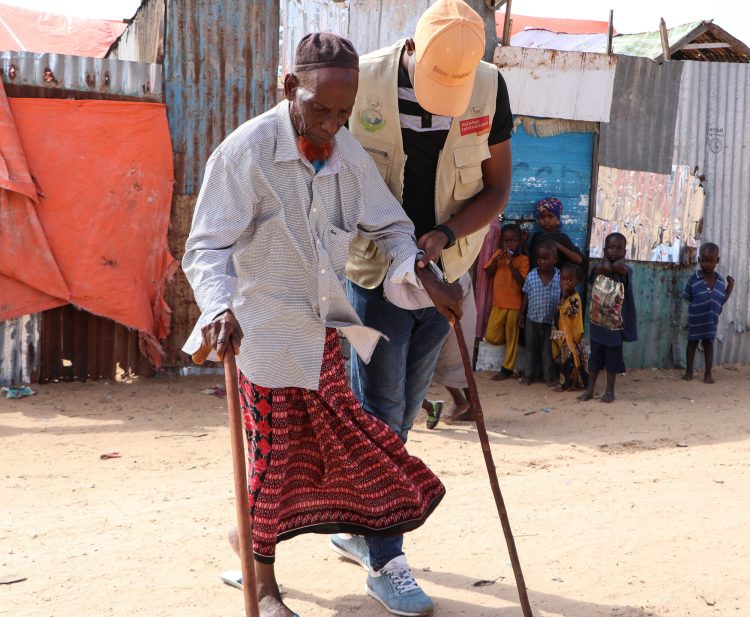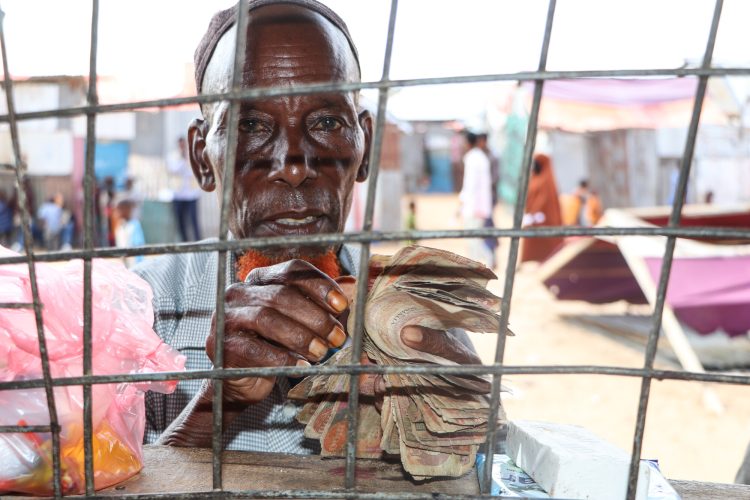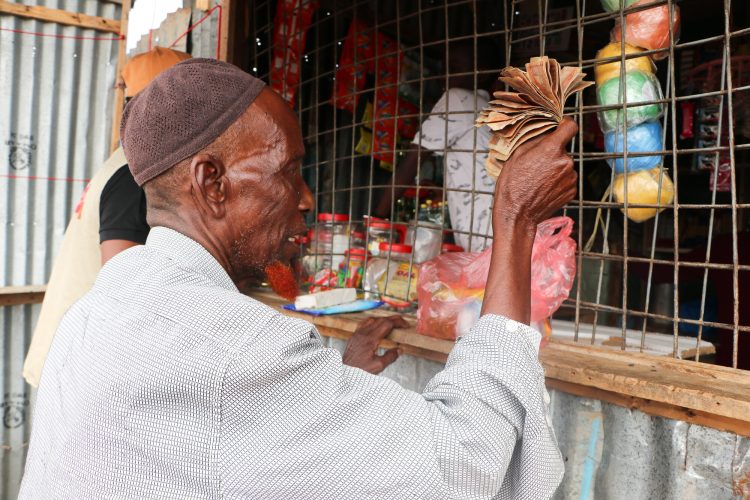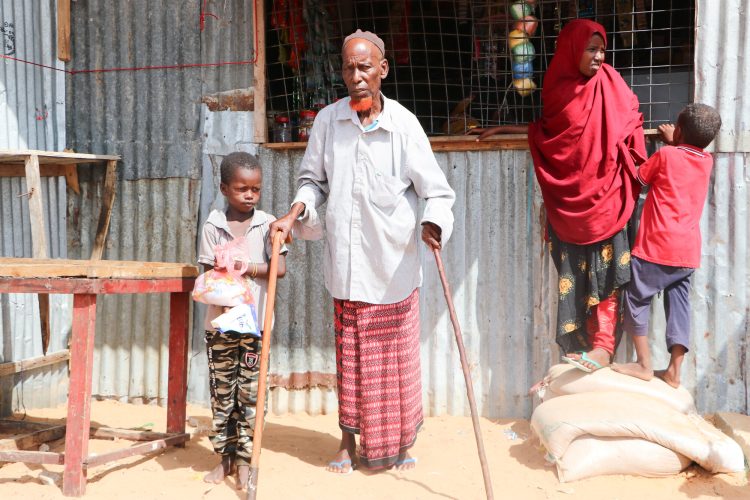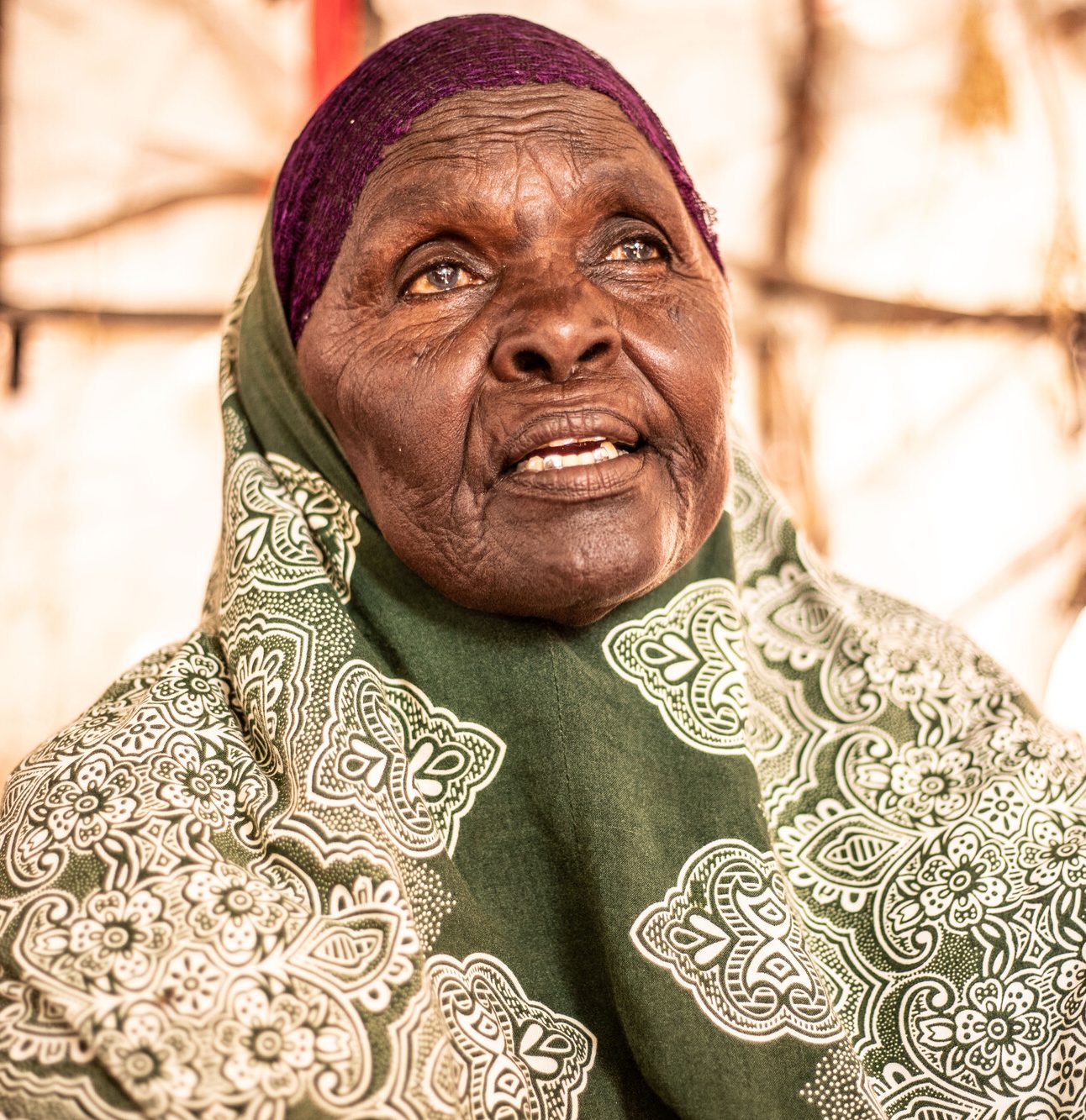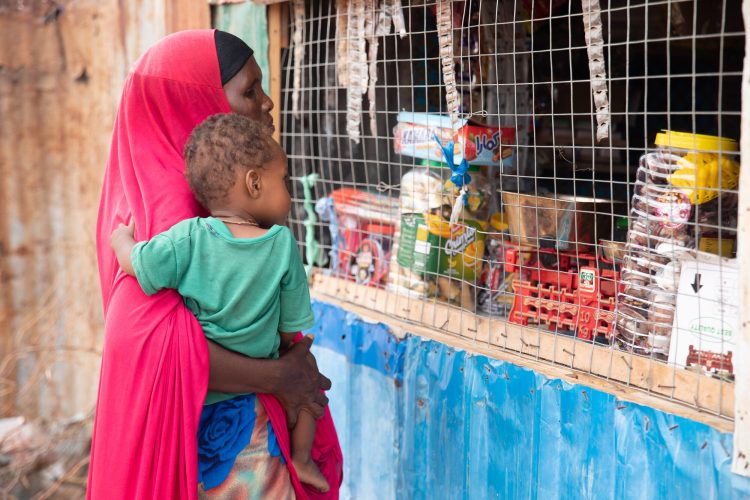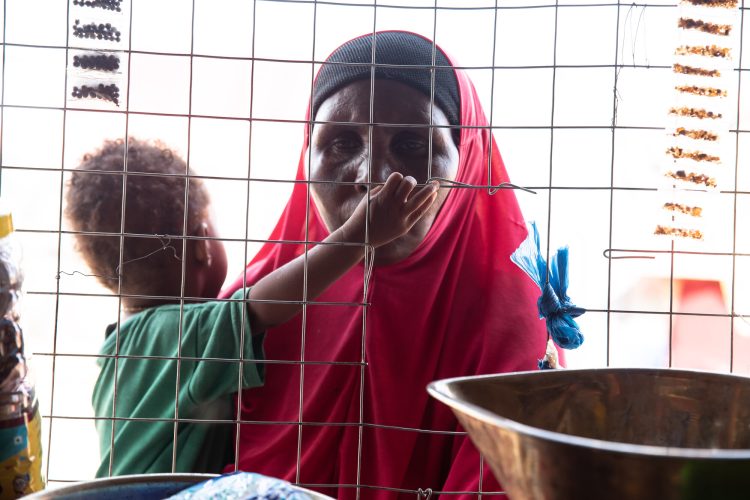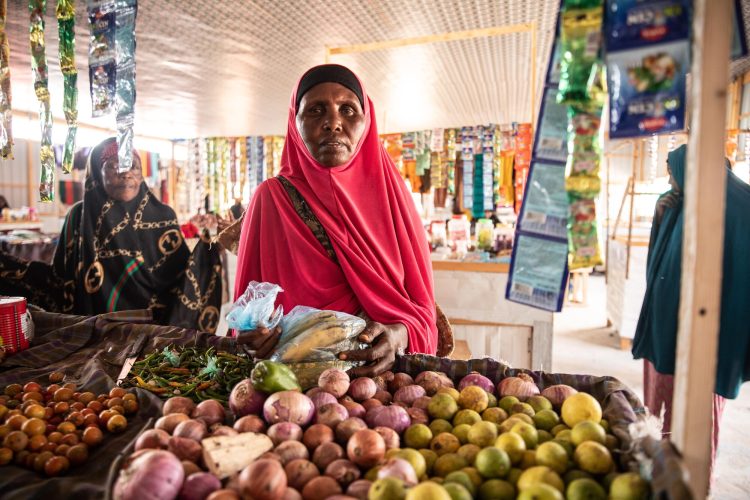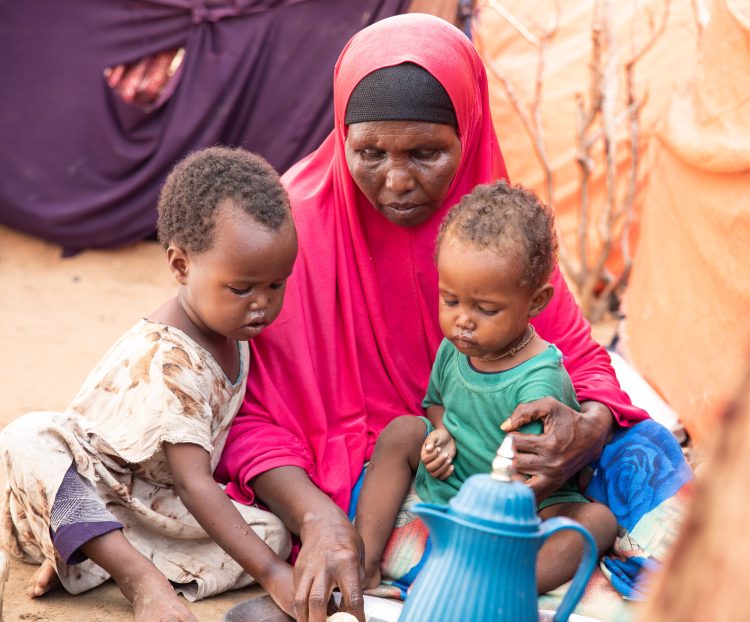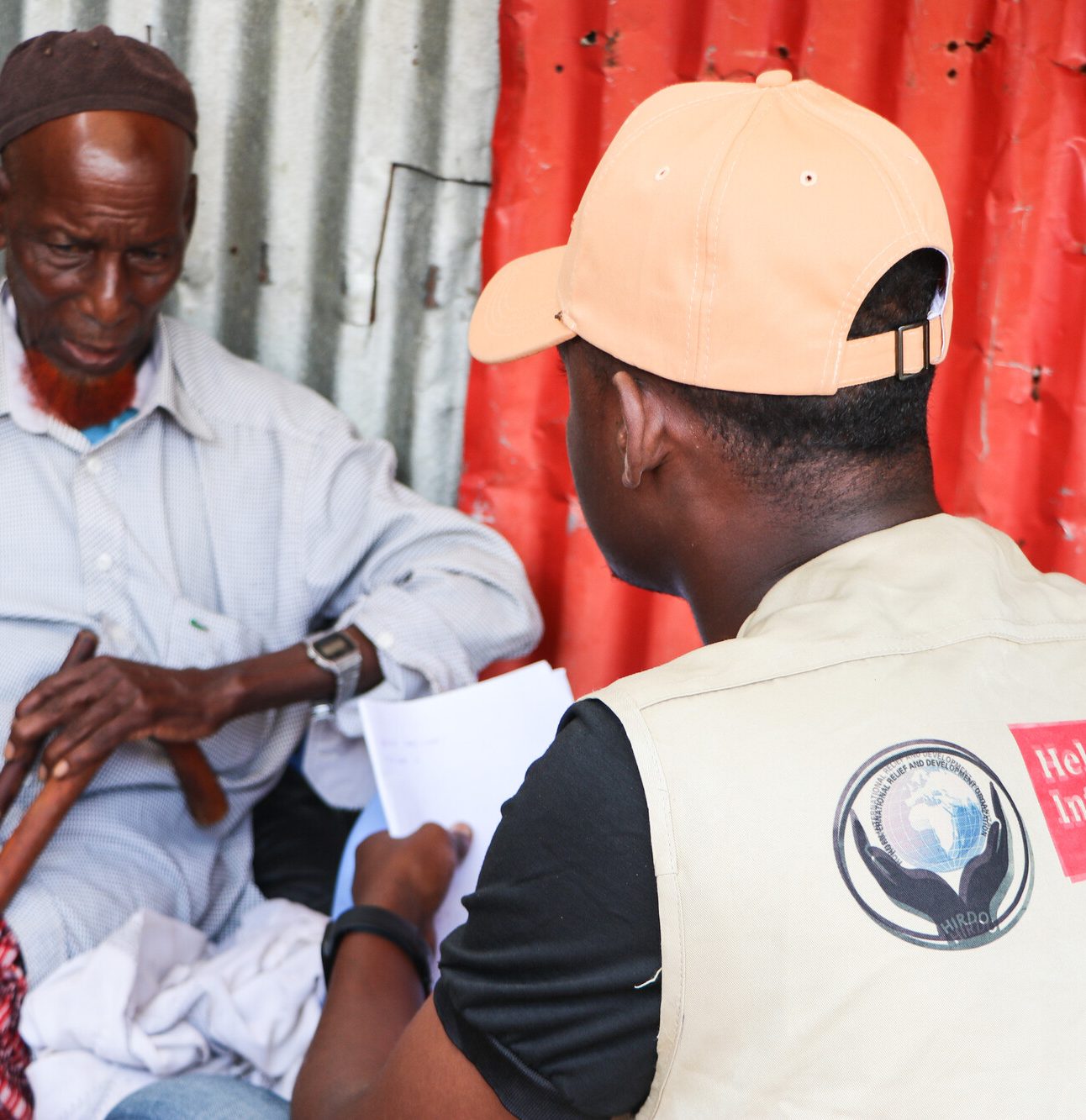Abbas Hussein Ibrahim, a 75-year-old agro-pastoralists lived with his family in Kurtunwarey village in the lower Shabelle region of Somalia. The current drought forced him to flee his home and seek refuge in the Bolow IDP camp in Kahda district, Mogadishu.
“We can no longer farm or raise livestock and are now in need of support for food and healthcare. I have been suffering from damaged nerves for six years and cannot walk without crutches or walking sticks.” He said.
Abbas and his family have been living in this camp for eight months. He has received cash assistance from HIRDO, HelpAge’s partner. With this support, he was able to buy food and other essentials, but he still struggles with his day-to-day needs.

